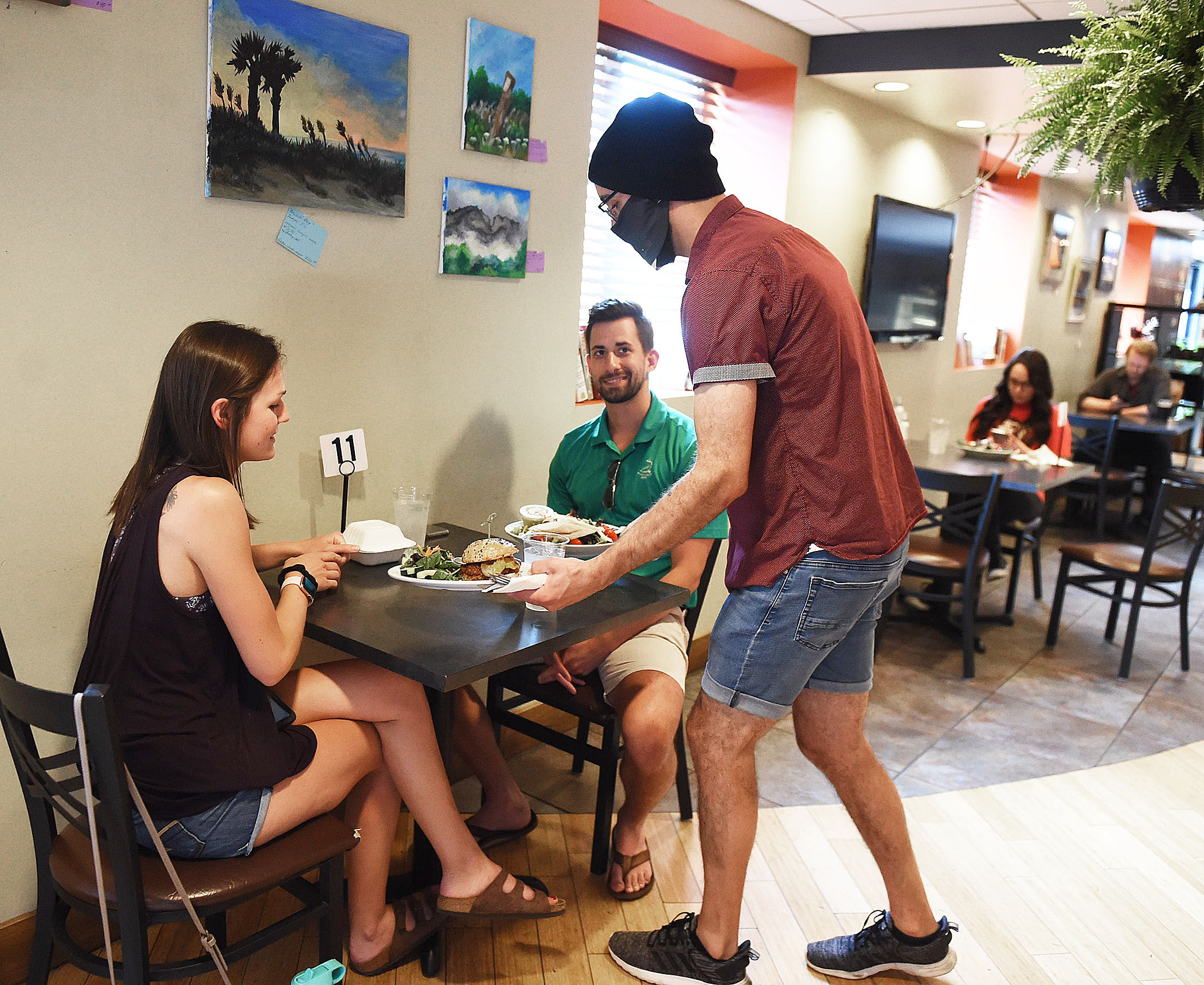By Madison Urse
Good food, quality time with friends and family, and safety for everybody are three things restaurants in Morgantown strive to provide for their customers.
It’s a big order even in the best of times, but with a pandemic on their plates, just staying operational is a challenge.
It’s no secret the coronavirus has created financial burdens for many businesses.
For restaurants in particular, COVID-19 has been painful.
“I’m always rooting for family businesses around the area,” said Patrick Oliverio, one of the owners of Oliverios on the Wharf, “The family businesses seem to have the people who are really striving to do right and put good stuff on the table.”
With Monongalia County’s recent spike in cases, many restaurants have reverted to takeout/delivery only and reclosed their dining rooms — Hill & Hollow, Iron Horse downtown, Mountain State Brewing Co., The Lakehouse and Colsante’s in Westover are just a few who have made this decision.
It’s yet another hit for an industry that’s already suffered several blows.
For those restaurants opting to keep their dine-in service going, West Virginia’s current guidelines mandate they remain at 50% capacity and practice social distancing — meaning serving fewer customers.
Employees are wearing gloves and masks when serving meals, which translates to PPE (personal protective equipment) expenses.
Additionally, some restaurants are choosing to serve food in to-go ware even if guests are dining in, on top of increased carryout orders.
And while to-go ware does have some upsides — such as creating less accidental contact with customers’ food and providing easy clean up for the staff — buying all those boxes, forks, spoons, knives and cups can seriously crunch the bottom line.
To-go ware is more expensive to use in comparison to using washable glass or plastic ware.
It also causes more environmental waste.
Most restaurants do not use compostable to-go ware, because it costs roughly twice as much as the alternative.
Terra Cafe has opted to swallow that cost.
“Because of our to-go ware being compostable, I have to buy it in lower quantities than what you would for Styrofoam,” Terra Cafe General Manager Richia Riggleman said. “A 100 pack of compostable to-go ware costs about $45 dollars.”
On average, a case of 200 non-compostable Styrofoam to-go boxes is about $20 dollars.
Compostable or not, many restaurants are forced to eat the extra cost of using far more takeout containers.
Plus, restaurants are sanitizing everything frequently, adding the expense of lots of extra cleaning products.
The precautions are meant to keep customers and staff as safe as possible during these uncertain times. But the costs can hurt.
Most restaurants have been forced to temporarily reduce their staff, which has put many people out of work.
“We have on payroll about 70 people,” said Peter Padula, owner of Apple Annie’s, “and we only kept about 15 through this.”
And while many restaurants continue to work toward bringing employees back, they are first and foremost focused on doing their best to feed people while taking necessarily precautions.
“We are making sure everyone has their temperature checked during their shift,” said Terra Cafe General Manager Richia Riggleman. “And we have put a barrier in between the register so that there is a shield between the customer and the staff member.”
Recently, when an employee feared they may have been exposed, Terra Cafe made the decision to close for a few days to deep clean as they awaited the COVID-19 test results.
Thankfully, the verdict was negative and Terra Cafe is back at work serving customers — though the indoor dining area is closed for now. The patio remains open.
Recently, several more local eateries and bars have been forced to take additional losses in order to close for several days to undergo deep cleans after employees or patrons tested positive.
And while many have reopened, Gov. Jim Justice said Friday that if the numbers in the county don’t improve, he may have to mandate the closure of bars again, and require all restaurants to operate on takeout/delivery services only.
Traditional dine-in eateries aren’t the only businesses feeling the pinch of the pandemic. Bars were shut down for a time and are now also only allowed to operate at 50% capacity, with space for proper physical distancing.
To help bring in some income during the shutdown, rules were tweaked to allow for takeout beverages of the alcoholic variety — growlers, bottles of wine and cider and beer in cans, mostly.
With the recent outbreak, however, some bar owners have closed their doors again, to be safe.
Gene’s Beer Garden, Apothecary Ale House, 123 Pleasant Street and The Frosted Mug are among those who announced they will be closed until further notice, as a precaution.
Until the virus is contained, local restaurants are relying on loyal customers to stay afloat as they face ever-evolving challenges.
“We, as Apple Annie’s, rely heavily on the community — people want local, even travelers on the interstate,” said Padula. “If you’re struggling, they want to help you out, especially if you’ve got a good product.”
Tweet @DominionPostWV




